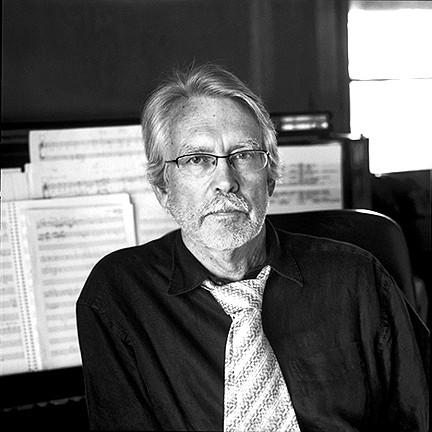Emmanuel Music debuts an intriguing late night of music and poetry
Emmanuel Music launched a new late-night initiative Saturday, adding to its evening concert series and weekly Bach cantata services.
The program for Late Night at Emmanuel included several settings of Allen Ginsberg’s poetry alongside two premieres by John Harbison, set to poems by Jessica Fischer and Lloyd Schwartz. The program was curated by baritone David Kravitz and mezzo-soprano Lynn Torgove.
If the cabaret setting in Emmanuel’s Parish Hall—with drinks, light food, and table seating—was an experiment in drawing a younger, hipster crowd, the result wasn’t obvious at the 8 p.m. performance, the first of an unusual evening doubleheader. But Emmanuel has never been a box-office or appearance-driven company, so it would probably be a mistake to understand this new series along the same lines of other organizations’ appeals to the young professionals set. Instead, the room was full of longstanding Emmanuel attendees, equally happy to turn out for a concert, a church service, or a (sold-out) cabaret of contemporary music.
First up were two settings of Ginsberg’s “A Supermarket in California,” by Andy Vores and Elena Ruehr, performed without pause by baritone Kravitz and the Arneis Quartet. Vores gives broken halos to the strings, highlighting and occasionally poking at the voice, which charts the prosody of the text. Ascents and descents were sharply defined and calculated, but by the end of the piece, a surprising poignancy grew from all this musical geometry.
Ruehr’s take was warmer from the start, more harmony-driven, with a chorale in the quartet growing into intricate elaborations. She captured Ginsberg’s affection for Walt Whitman, “Ah, dear father, graybeard, lonely old courage-teacher,” who he meets in the supermarket. Vores, meanwhile, brought you the “neon fruit” of the supermarket.
Next was Harbison’s The Right to Pleasure, a four-song cycle for mezzo-soprano, in the Boston premiere of its orchestration for string quartet and double bass. This is a masterful cycle, turbulent and taut, as sung here by Lynn Torgove. The first song, “My Russian Lullaby,” was marked by an ominous bass pizzicato impulse. The eponymous “The Right to Pleasure” brought a distinctive jazz or neo-Baroque walking bass, while “Brancusi’s Head” was enticingly soupy. “Flayed” completed the set with hair-raising colors. Harbison, perhaps our most experienced art-song composer, hits his marks and brings something both surprising and entirely natural to every setting. His writing is sensuous yet abstract, grooving with sophistication.
Movements II and III of Lee Hyla’s Howl, originally written for the Kronos Quartet with Ginsberg himself as reader, were performed by the Arneis Quartet with Kravitz reading the poem. Hyla’s writing inhabits a style similar to the Vores, with shrill string decorations around the words, but it was less clear what this score added to the poetry. The spoken-word format paled in comparison to the singing that surrounded it, declaiming more than howling.
The concert concluded with the premiere of Harbison’s Schwartzsongs, three settings of Lloyd Schwartz’s poetry, riffing on the cabaret, singer-and-piano style. The critic-poet was on hand to read his stanzas (as he also did for Jessica Fischer’s poems and some of the Ginsberg selections).
As Harbison explained in a program note, he viewed these settings “as an effort to reproduce the reciting and reading voice of Lloyd Schwartz which I have experienced many times. The particular rhythmic cadence of Lloyd’s delivery defined the musical idiom.” The influence was clear, and was a neat summation of the evening’s artful blend of poetry and music.
Late Night at Emmanuel returns on April 27 for two performances of David Lang’s the little match girl passion. emmanuelmusic.org
Benjamin Pesetsky is a composer and writer living in Boston.
Posted in Performances





